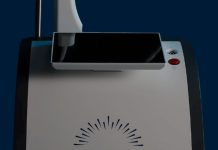A trial investigated the safety and efficacy of a dual-wavelength laser for tattoo removal.
A study published in Lasers in Surgery and Medicine investigated the safety and efficacy of a dual-wavelength laser for tattoo removal.
A 1064/532-nm picosecond domain laser was used as treatment for tattoo removal in 30 enrolled patients from Vietnam with 52 tattoos at 6-to-8-week intervals. Both the safety and efficacy were evaluated at each treatment session and then 4 weeks after the final session. To be considered a “good” response to treatment, there needed to be 75% clearance of tattoo pigments.
There was a reduction of tattoo appearance in all patients,l with 88.5% of tattoos achieving a “good” response to treatment and 36% achieving better than 75% clearance of pigment at the end of 6 sessions. Of the adverse events (AEs) reported, most did not persist and only one case of hypopigmentation was reported.
The authors came to the conclusion that treatment with the 1064/532-nm picosecond domain laser is effective for tattoo removal and has a minimal risk of long-term AEs in patients that have a Fitzpatrick skin type III of IV.
Reference:
1. Nguyen HT, Doan EVL, Tran TNA, Vu TTP, Phan HN, Sobanko JF. Safety and efficacy of tattoo removal using a dual-wavelength 1064/532-nm picosecond laser in patients with fitzpatrick skin type iii and iv. Lasers in Surgery and Medicine. n/a(n/a). Published October 7, 2020. Accessed June 23, 2021. doi:https://doi.org/10.1002/lsm.23333






